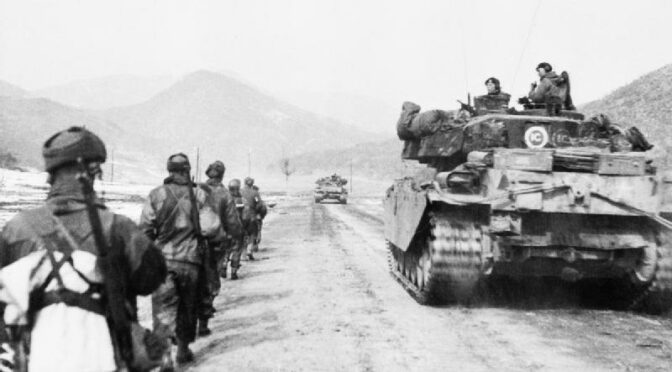A version of this article was first published in The Daily Express on 10th August 2017. © Richard Kemp
North Korea is not America’s problem alone but the world’s. Britain and the US last fought against its aggression during the war of 1950–1953 after North Korea invaded the south.
Today the threat is greater — a nuclear-armed state fast developing global strike capabilities. North Korea’s most recent missile test indicated a potential capability to reach much further than previously thought. Its theoretical range of around 10,000 kilometres would put Washington, New York and London within the target zone.
And the threat goes even further. Pyongyang has colluded extensively with Tehran over ballistic missile development and we must assume there has also been, or will be, cooperation on nuclear programmes, especially with $100 billion of financial assets released to Iran under President Obama’s nuclear deal. The ayatollahs — the world’s greatest supporter of terrorism — may not be the only rogue client looking to North Korea for nuclear capability.
Is the threat from Kim Jong-Un likely to materialize? He knows that a strike against US allies or territory, which he has been threatening, would unleash what President Trump describes as the ‘fire and fury’ of the most powerful military in the world and would end both him and his regime. But he is an unpredictable and irrational dictator, capable of over-ruling the more sober-headed advisers that some believe constrain him.
Diplomatic efforts to halt or contain North Korea’s pursuit of nuclear weapons over 25 years have all failed and will fail in the future given Pyongyang’s unwavering determination to continue developing them.
Nor will the sanctions regime ordered this week by the UN Security Council bring North Korea to heel any more than they have in the past. The country will cling on to its weapons programme to the end, even as its citizens starve in their millions.
Although China has signed up to the new sanctions, it will not enforce them fully and the network of illicit transactions through Chinese banks and companies that North Korea depends on will continue unabated.
What other options exist to deal with this increasingly dangerous threat? Firstly pile on the pressure against China to close down North Korea’s nuclear programme by strangling its economy and destabilizing the regime. Given Beijing’s unwillingness to do this, it will need Western trade action against China as well as targeted sanctions against its banks and companies that keep the North Korean economy running. The US Treasury has already begun this, but international backing is needed.
Next the US should step up its long-neglected ballistic missile defences, including in space, to increase its own protection as well as that of its most vulnerable regional allies, especially South Korea and Japan.
Concurrently America and its allies must prepare for war. Surgical strikes or special forces raids against North Korean nuclear facilities alone would not be sufficient. A major air, sea and ground incursion would be needed to eliminate all nuclear capability. But however sudden and overwhelming an attack, North Korea would immediately lash out at the south, likely inflicting civilian casualties on a massive scale.
Unpalatable as this apocalyptic option undoubtedly is, it could be less devastating than the consequences of a successful North Korean nuclear strike. And showing China that the US and its allies are serious about going to war if all else fails could push Beijing to act in a way that makes that unnecessary.
Image: British tanks and infantry, Korea, 1951

